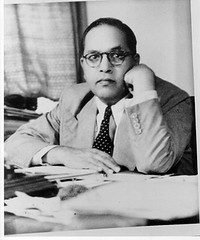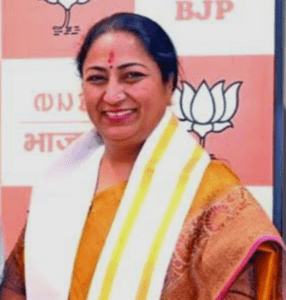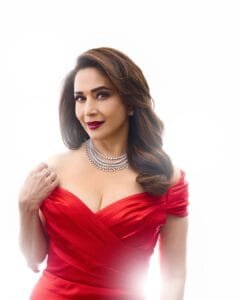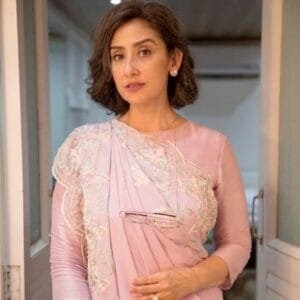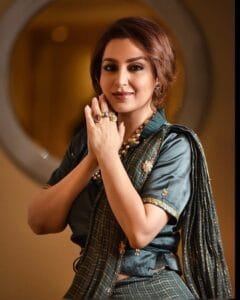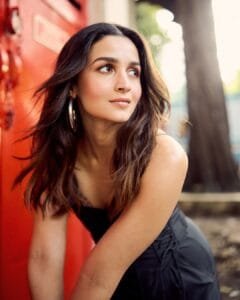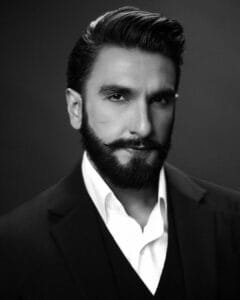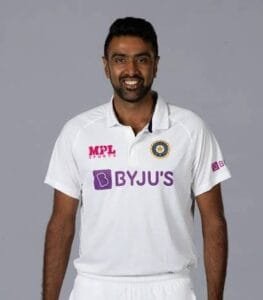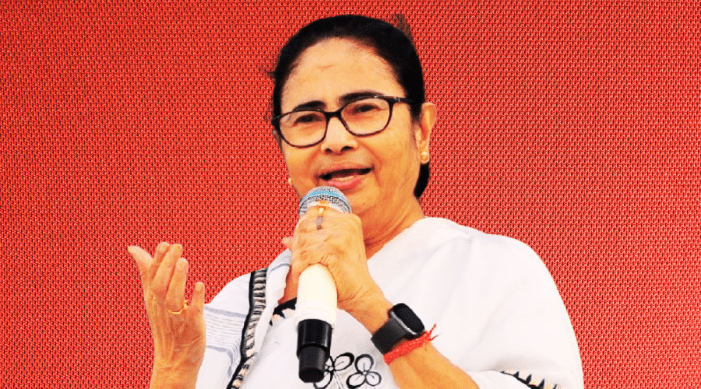
Mamata Banerjee
Read Now
Getting your Trinity Audio player ready... |
Mamata Banerjee Husband, Age, News, Father, Cast, More
Quick Facts
Watch Mamata Banerjee
Mamata Banerjee Biography
Mamata Banerjee, often hailed as “Didi” by her followers, is a significant political figure in India, known for her resilience, leadership, and contribution to the socio-political landscape of West Bengal. Her journey from humble beginnings to becoming one of the most influential leaders in Indian politics is truly inspiring. Here, we delve into her physical stats, date of birth, early life, and education.
Physical Stats
Mamata Banerjee is known for her simplicity, which is reflected in her physical appearance and demeanor. She avoids ostentation, often seen in a simple white cotton sari with a blue border. Her physical statistics are modest:
- Height: Approximately 5 feet 4 inches (163 cm)
- Weight: Around 65 kg (143 lbs)
- Eye Color: Black
- Hair Color: Black, though streaked with grey in recent years due to aging
- Build: Average
Her straightforward and approachable appearance complements her image as a leader of the people. Despite her advancing age, she is known for her high energy levels and tireless work ethic, which are key to her political success.
Date of Birth
Mamata Banerjee was born on January 5, 1955, in Kolkata (then Calcutta), West Bengal, India. Her birth date places her under the zodiac sign of Capricorn, often associated with determination, ambition, and practicality—qualities that are evident in her political career and leadership style.
Early Life
Mamata Banerjee was born into a lower-middle-class Bengali Brahmin family. Her father, Promileswar Banerjee, was a freedom fighter and a small business owner, while her mother, Gayetri Devi, was a homemaker. Mamata was the youngest of five siblings and grew up in a modest household that emphasized hard work and simplicity.
The early years of Mamata’s life were marked by struggle and perseverance. She lost her father at the young age of nine due to a lack of proper medical care. This event left a profound impact on her, instilling a sense of resilience and determination to overcome life’s challenges. Despite financial constraints, Mamata displayed a keen interest in academics and extracurricular activities. She was a spirited child, participating in cultural events and debates, which laid the foundation for her later public speaking and leadership abilities.
Education
Mamata Banerjee’s educational journey is a testament to her dedication and determination. Despite the challenges she faced, she managed to pursue her education and equip herself with the skills needed for a career in public life.
- Schooling
Mamata completed her primary and secondary education in Kolkata. She attended Deshbandhu Sishu Sikshalay and later graduated from Jogamaya Devi College, which is affiliated with the University of Calcutta. She was an average student academically but was deeply involved in student politics and other extracurricular activities. - Undergraduate Studies
Mamata pursued her Bachelor’s degree in History from Jogamaya Devi College, under the University of Calcutta. Her choice of history reflects her interest in understanding the socio-political evolution of India, which later influenced her political ideologies. - Postgraduate Studies
Following her undergraduate degree, Mamata went on to complete a Master’s degree in Islamic History from the University of Calcutta. This was a remarkable choice, showcasing her inclusive approach and interest in understanding diverse cultural and historical perspectives. - Legal Education
In addition to her postgraduate studies, Mamata Banerjee earned a degree in education (B.Ed) and a law degree (LL.B) from the University of Calcutta. Her law education provided her with a deeper understanding of India’s legal framework, which proved instrumental in her political career. - Doctoral Pursuits
Mamata also holds an honorary doctorate degree from Kalinga Institute of Industrial Technology (KIIT) in Odisha, awarded in recognition of her contributions to Indian society and governance.
Influences and Ideologies
Mamata’s education and early life experiences played a crucial role in shaping her political ideologies. Growing up in a family with limited means, she developed empathy for the underprivileged and a strong sense of social justice. Her academic background in history and law gave her a solid foundation for understanding India’s socio-political fabric, while her exposure to student politics provided her with a platform to develop her leadership skills.
Emergence in Politics
Mamata Banerjee’s foray into politics began during her college days when she joined the Indian National Congress (INC). Her early experiences as a student leader were marked by her active involvement in protests and movements advocating for the rights of the common people. Her passion for social justice and grassroots activism eventually led her to establish the All India Trinamool Congress (AITC) in 1998.
Today, as the Chief Minister of West Bengal, Mamata Banerjee continues to inspire millions with her unwavering commitment to public service, her emphasis on inclusivity, and her grassroots approach to governance.
Age
Mamata Banerjee was born on January 5, 1955, which makes her 69 years old as of 2024. Her age reflects her decades-long journey in Indian politics, marked by her rise from grassroots activism to becoming the Chief Minister of West Bengal. Despite her advancing years, she continues to display boundless energy, tirelessly working for the welfare of her state and its people.
Caste
Mamata Banerjee belongs to the Brahmin caste, which is traditionally considered an upper caste in the Hindu societal hierarchy. However, her political approach has always emphasized inclusivity and the upliftment of marginalized communities. Mamata’s policies and governance have been oriented toward addressing the needs of all social groups, irrespective of caste, class, or religion, making her a leader who transcends caste boundaries.
Religion
Mamata Banerjee practices Hinduism and identifies strongly with her cultural roots. Her religious faith is evident in her participation in Hindu festivals, such as Durga Puja, which she celebrates with great fervor and enthusiasm. At the same time, Mamata is known for her secular approach to governance. Her inclusive politics have consistently advocated for communal harmony and respect for all religions.
In a state as culturally and religiously diverse as West Bengal, Mamata has worked hard to ensure that the secular fabric remains intact. Her efforts to promote unity among various communities have earned her widespread respect.
Sun Sign
Born on January 5, Mamata Banerjee’s zodiac sign is Capricorn. Capricorns are known for their determination, discipline, and practicality, traits that Mamata exhibits in abundance. Capricorns are also recognized for their leadership skills and ability to remain focused on their goals, even in the face of challenges.
These attributes are clearly visible in Mamata’s political journey. Her unwavering resolve to stand by her principles and her ability to overcome obstacles with resilience and strategy have defined her career.
Hometown
Mamata Banerjee’s hometown is Kolkata, the capital city of West Bengal. Kolkata, known as the “City of Joy,” is a vibrant cultural hub with a rich history and a unique blend of traditions and modernity. It is here that Mamata’s political career began, and it remains the heart of her political activities.
Her deep connection with Kolkata is evident in her policies and initiatives aimed at improving the city’s infrastructure, economy, and cultural heritage. From restoring historical landmarks to promoting arts and culture, Mamata has taken significant steps to enhance Kolkata’s stature on the global stage.
Birthplace
Mamata Banerjee was born in Kolkata (then Calcutta), West Bengal, India. Her birthplace is significant not only for its historical and cultural importance but also because it shaped her worldview and political aspirations.
Growing up in a modest household in Kolkata, Mamata experienced firsthand the struggles of the common people. This early exposure to social and economic challenges fueled her desire to work for the upliftment of the underprivileged and to make a meaningful difference in society.
Hobbies
Despite her demanding political career, Mamata Banerjee has a range of hobbies that reflect her multifaceted personality. Her interests include writing, painting, and music, which serve as outlets for her creative energy and provide a glimpse into her artistic side.
- Writing
Mamata Banerjee is an accomplished writer who has authored numerous books on various subjects, including politics, society, and poetry. Her works are often reflective and insightful, offering a glimpse into her thoughts and beliefs. She has written in both Bengali and English, demonstrating her linguistic proficiency. Her books, such as Struggle for Existence and India in Distress, showcase her deep understanding of political and social issues. She has also penned poetry, expressing her emotions and aspirations through verse. - Painting
Mamata Banerjee is a talented painter, and her artworks have been displayed in exhibitions and auctions. Her paintings often feature vibrant colors and depict themes of nature, spirituality, and human emotions. Notably, her art has been used to raise funds for charitable causes, highlighting her commitment to social welfare. Painting serves as a therapeutic activity for Mamata, allowing her to unwind and connect with her creative instincts. - Music
Mamata has a deep appreciation for music, particularly Bengali folk songs and Rabindra Sangeet (songs written and composed by Rabindranath Tagore). She has even composed a few songs herself, showcasing her musical talent. Music plays a significant role in Mamata’s life, offering her solace and inspiration amidst the hectic pace of politics. - Walking and Fitness
Despite her busy schedule, Mamata Banerjee makes time for physical activity. She is often seen walking briskly, even during rallies and public events, as part of her fitness routine. This habit not only keeps her physically active but also reflects her grounded and approachable nature. - Cultural Enthusiasm
Mamata is deeply passionate about Bengali culture and heritage. She actively participates in cultural events and festivals, emphasizing the importance of preserving the state’s rich traditions. Her love for culture is evident in her efforts to promote local artisans, artists, and performers through various initiatives.
Mother: Gayetri Devi
Mamata Banerjee’s mother, Gayetri Devi, played a pivotal role in shaping her personality and values. As a homemaker, Gayetri Devi managed the Banerjee household with grace and strength, despite the financial and emotional struggles that came with raising a large family.
After the untimely death of Mamata’s father, Gayetri Devi became the backbone of the family, ensuring that her children were educated and nurtured. Mamata often speaks about her mother with deep respect and affection, crediting her for teaching her the importance of hard work, humility, and compassion.
Gayetri Devi’s influence is evident in Mamata’s personal and political life. Her strong sense of empathy and unwavering commitment to social welfare can be traced back to the lessons she learned from her mother. Mamata has often mentioned that she draws strength from her mother’s sacrifices and resilience, which continue to inspire her.
Father: Promileswar Banerjee
Mamata Banerjee’s father, Promileswar Banerjee, was a freedom fighter and a small business owner. His contributions to India’s independence movement left a lasting impression on young Mamata, instilling in her a deep sense of patriotism and social responsibility.
Promileswar Banerjee’s life was marked by struggle and dedication. As a freedom fighter, he faced numerous challenges, and his modest business earnings were barely enough to support the family. Unfortunately, he passed away when Mamata was just nine years old.
The loss of her father at such a young age was a turning point in Mamata’s life. It brought immense financial and emotional hardship to the family but also made her determined to overcome obstacles. The memory of her father’s sacrifices and ideals continues to guide her in her political journey.
Marriage
Mamata Banerjee is famously unmarried. Her decision to remain single has often been a topic of discussion, but she has consistently maintained that her life’s mission is to serve the people. By choosing not to marry, Mamata has dedicated herself fully to her political career and the welfare of her state.
She has explained her choice in various interviews, stating that she views her role as a public servant as a full-time commitment. For Mamata, her state and its people are like her family, and she has devoted her life to their betterment. Her single status has allowed her to focus entirely on her work, without the distractions or responsibilities of a conventional family life.
Siblings
Mamata Banerjee was born into a large family and has several siblings. She is the youngest of five brothers and sisters. Despite her busy political career, Mamata shares a close bond with her siblings, many of whom have supported her in various ways throughout her life.
- Ajit Banerjee
One of Mamata’s elder brothers, Ajit Banerjee, has been a strong pillar of support for her. He is not directly involved in politics but has contributed to the family’s collective strength and unity. - Kartik Banerjee
Kartik Banerjee, another of Mamata’s brothers, has played a more active role in politics. He is known to assist Mamata in managing the Trinamool Congress (TMC) party’s grassroots activities. - Other Siblings
While not much is publicly known about her other siblings, they are said to maintain a low profile and avoid the limelight. The Banerjee family values their privacy and prefers to stay out of political controversies.
Mamata’s relationship with her siblings reflects her sense of loyalty and familial responsibility. Despite her demanding career, she ensures that family ties remain intact, often mentioning her siblings in her public speeches.
Kids
Mamata Banerjee does not have any children. Her decision not to marry naturally led to her not having a conventional family with children. However, Mamata has often referred to the people of West Bengal as her children, expressing her maternal instincts through her policies and governance.
Her focus on the welfare of women, children, and marginalized communities in her state reflects her nurturing side. Programs like Kanyashree Prakalpa, which aims to empower young girls through education, and Sabuj Sathi, which provides bicycles to school students, are examples of how Mamata channels her care and concern for the younger generation.
In many ways, Mamata’s work as a leader and policymaker reflects her desire to nurture and protect the people she serves, fulfilling the role of a mother figure on a larger scale.
Mamata Banerjee, popularly known as “Didi,” is a prominent Indian political figure who has made a lasting impact on the political landscape of India. As the founder of the All India Trinamool Congress (AITC) and the first woman Chief Minister of West Bengal, Mamata has established herself as a relentless fighter for the common people. In this article, we delve into her illustrious political career, accolades, salary, and net worth, providing a comprehensive overview of her life as a politician.

Political Career
Early Political Journey
Mamata Banerjee’s political career began in the early 1970s when she joined the Congress Party as a young activist. Her foray into politics was driven by her deep sense of social responsibility and a desire to address the inequalities in society.
In 1975, at the age of 20, Mamata gained attention during the Emergency period in India by standing up against the oppressive measures of the ruling government. She quickly rose through the ranks of the Congress Party, becoming a symbol of youth leadership.
In 1984, Mamata achieved a significant milestone by defeating veteran Communist leader Somnath Chatterjee in the Jadavpur Lok Sabha constituency, making her one of the youngest members of Parliament (MP) at the time. During her tenure as an MP, she worked on issues related to women’s empowerment, labor rights, and social justice.
Formation of the All India Trinamool Congress (AITC)
In 1997, after growing disillusioned with the Congress Party’s leadership, Mamata Banerjee decided to chart her own path by forming the All India Trinamool Congress (TMC). The party was established with the aim of challenging the dominance of the Communist Party of India (Marxist) (CPI-M) in West Bengal, which had ruled the state for over three decades.
Her decision to form the TMC was a bold move, as it marked her emergence as an independent political force. The TMC focused on issues such as rural development, economic upliftment, and social equality, resonating with a wide section of the population in West Bengal.
Chief Minister of West Bengal
Mamata Banerjee’s relentless campaigning and grassroots connection paid off in 2011 when the TMC secured a historic victory in the West Bengal Assembly elections. The TMC ended 34 years of Left Front rule, and Mamata Banerjee was sworn in as the first woman Chief Minister of West Bengal.
As Chief Minister, Mamata focused on policies aimed at poverty alleviation, rural development, and improving healthcare and education. Some of her notable initiatives include:
- Kanyashree Prakalpa: A scholarship program to promote education and delay early marriages among girls.
- Sabuj Sathi: A scheme to distribute bicycles to school students to improve accessibility to education.
- Shikshashree: A scholarship program for Scheduled Caste and Scheduled Tribe students.
She was re-elected as Chief Minister in 2016 and 2021, consolidating her position as one of the most influential leaders in Indian politics.
Key Political Achievements
- Agrarian Reforms: Mamata Banerjee has focused extensively on improving the conditions of farmers, introducing schemes like Krishak Bandhu to provide financial support and insurance for farmers.
- Industrialization: While her stance on land acquisition has been controversial, Mamata has encouraged small and medium enterprises to flourish in West Bengal.
- Social Welfare Programs: Her government has introduced numerous social welfare schemes that target marginalized communities, including widows, senior citizens, and unorganized workers.
Awards and Recognition
Mamata Banerjee has received several accolades for her contributions to politics and governance:
- United Nations Public Service Award (2017)
- Mamata’s flagship initiative, the Kanyashree Prakalpa, won the United Nations Public Service Award for empowering girls through education.
- Honorary Doctorate
- In 2018, Calcutta University conferred an honorary Doctorate of Literature (D.Litt.) on Mamata Banerjee for her contribution to arts, culture, and politics.
- Recognition in Literature and Arts
- Mamata is also an acclaimed author and painter. Some of her artworks have been displayed in exhibitions and sold to raise funds for social causes. Her literary works have been appreciated for their depth and sensitivity.
- Forbes India’s 100 Most Powerful Women
- Mamata Banerjee has been featured in Forbes India’s list of the most powerful women, highlighting her influence in Indian politics.
Salary and Financial Earnings
As the Chief Minister of West Bengal, Mamata Banerjee’s official salary is modest compared to her stature. Her monthly salary is reported to be around ₹110,000 (approximately USD 1,300). However, Mamata is known for her austere lifestyle and often donates her earnings to charitable causes.
Her transparency in financial matters has been widely noted, and she has consistently emphasized her commitment to serving the people rather than accumulating wealth.
Net Worth
Mamata Banerjee’s declared net worth is surprisingly modest for a politician of her stature. According to the affidavits she submitted during elections:
- Her total assets are estimated to be around ₹30 lakh (approximately USD 36,000).
- She owns no property and does not have any significant investments.
- Mamata’s primary assets include a few pieces of jewelry, valued at around ₹15,000, and savings in bank accounts.
Mamata Banerjee’s financial disclosures reflect her simple lifestyle. She does not own a car or any luxury possessions and often travels by public transport or on foot. Her image as a “leader of the masses” is reinforced by her modest financial profile.
Lifestyle and Personal Philosophy
Mamata Banerjee’s lifestyle is a testament to her commitment to simplicity and public service. She is often seen wearing inexpensive cotton sarees and rubber slippers, reflecting her humble roots and connection to the common people. She avoids ostentation and prioritizes her role as a public servant over personal comforts.
Her approach to governance and personal life sets her apart from many other politicians in India, earning her the trust and admiration of millions.
Conclusion
Mamata Banerjee’s political career is a story of resilience, determination, and service to the people. From her early days as a Congress activist to becoming the Chief Minister of West Bengal and a national political figure, Mamata has consistently demonstrated her ability to connect with the masses and champion their causes.
Her achievements, including the successful implementation of social welfare schemes and her role in transforming West Bengal’s political landscape, have earned her widespread recognition and respect. Despite holding a powerful position, her modest salary and net worth reflect her dedication to a life of service and simplicity.
Mamata Banerjee continues to be a source of inspiration for millions, proving that leadership is not about personal gain but about the ability to bring about meaningful change in the lives of others. Her journey is a powerful reminder of the impact of perseverance and the importance of staying true to one’s principles.
Follow Mamata Banerjee on Instagram
Follow Mamata Banerjee on Twitter
Follow Mamata Banerjee on Facebook
FAQs
Early Life and Education
- Who is Mamata Banerjee?
- Mamata Banerjee is an Indian politician serving as the Chief Minister of West Bengal since 2011 and the chairperson of the All India Trinamool Congress (AITC).
- When was Mamata Banerjee born?
- She was born on January 5, 1955, in Kolkata, West Bengal, India.
- What is Mamata Banerjee’s educational background?
- She holds a Bachelor’s degree in Arts and a Master’s degree in Arts from the University of Calcutta.
Political Career
- When did Mamata Banerjee start her political career?
- She began her political career in the 1980s with the Indian National Congress (INC).
- Which party did Mamata Banerjee found?
- She founded the All India Trinamool Congress (AITC) in 1997.
- What positions has Mamata Banerjee held in the Indian government?
- She has served as the Minister of Railways, Minister of Coal, and Minister of Mines in the Indian government.
- When did Mamata Banerjee become the Chief Minister of West Bengal?
- She became the Chief Minister of West Bengal on May 20, 2011.
Achievements and Contributions
- What are some of Mamata Banerjee’s notable achievements as Chief Minister?
- She has been credited with various development projects, including the improvement of infrastructure, healthcare, and education in West Bengal.
- What is Mamata Banerjee’s stance on social justice issues?
- She is known for her strong stance on social justice, human rights, and her opposition to land acquisition without proper compensation.
Personal Life
- What is Mamata Banerjee’s nickname?
- She is affectionately known as “Didi” (Big Sister) by her supporters.
- Does Mamata Banerjee have any siblings?
- Yes, she has a younger sister named Mitali Banerjee.
- What are Mamata Banerjee’s hobbies?
- She enjoys reading, painting, and engaging in social work.
Political Challenges
- What challenges has Mamata Banerjee faced in her political career?
- She has faced opposition from various political parties, criticism over governance issues, and controversies related to her policies.
- How has Mamata Banerjee responded to criticism and challenges?
- She has often responded with resilience, maintaining her stance on key issues and continuing to work towards her goals.
Recent Activities
- What is Mamata Banerjee’s role in the INDIA bloc?
- She has been a prominent leader in the Indian National Developmental Inclusive Alliance (INDIA) bloc, advocating for opposition unity against the BJP.
- What are Mamata Banerjee’s plans for the future of West Bengal?
- She aims to continue developing the state’s infrastructure, healthcare, and education systems while promoting social justice and economic growth.
Public Perception
- How is Mamata Banerjee perceived by the public?
- She is seen as a strong and determined leader with a commitment to social justice and development, though opinions about her governance vary.
- What impact has Mamata Banerjee had on West Bengal’s politics?
- She has significantly influenced the political landscape of West Bengal, leading to major shifts in power and governance.
Personal Traits
- What are some of Mamata Banerjee’s personal traits?
- She is known for her resilience, dedication to social causes, and strong-willed personality.
- How does Mamata Banerjee handle political pressure?
- She handles political pressure with determination and a focus on her goals, often addressing issues head-on.
Public Engagements
- What public engagements does Mamata Banerjee participate in?
- She frequently engages in public meetings, rallies, and social work initiatives to connect with her constituents.
- How does Mamata Banerjee interact with her supporters?
- She maintains a close and personal connection with her supporters, often addressing them affectionately as “Didi” and listening to their concerns.
Political Alliances
- What political alliances has Mamata Banerjee formed?
- She has formed alliances with various regional and national parties to strengthen her political influence and opposition to the BJP.
- How does Mamata Banerjee view her political opponents?
- She views her political opponents with a critical eye, often challenging their policies and actions while advocating for her vision of governance.
- What is Mamata Banerjee’s vision for India’s political future?
- She envisions a united opposition that can effectively challenge the ruling party and promote inclusive development and social justice across the country.

